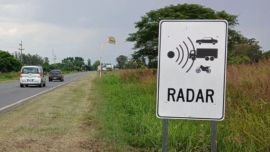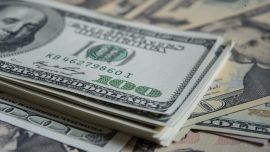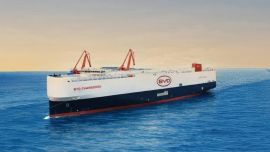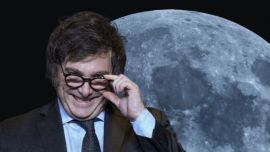During 16 years in power, the veteran navigated Germany through the 2008 financial turmoil and ensuing eurozone debt crisis, the 2015 refugee influx and now the coronavirus pandemic.
"Merkel has experienced more global crises than Macron, Johnson and Trump added together," noted Zeit weekly, referring to contemporaries in France, Britain and the United States.
While largely admired at home and abroad even in the final weeks of her reign, the legacy she leaves behind is marked both by light and shadows.
Party in crisis
Merkel scraped to a narrow win in 2005 against then-incumbent chancellor Gerhard Schroeder of the Social Democrats, putting her conservative CDU-CSU alliance on the path of power for over a decade.
At the zenith of her popularity, Merkel led the conservatives to a thumping win with 41.5 percent of votes in 2013. With her track record, she was able to end a crucial TV election debate that year with the simple closing words "you know me."
But her exit from politics has been marred by a succession crisis in her party.
Merkel's initial choices to take over from her, first Ursula von der Leyen and later Annegret Kramp-Karrenbauer, had to bury their ambitions over various missteps well before the election year began.
Her party's current chancellor candidate, Armin Laschet, is lagging behind his Social Democrat rival Olaf Scholz, with the conservative CDU-CSU on course to come in below its worst-ever score of well under 30 percent in Sunday's election.
Budget dogma
Once dismissed as the sick man of Europe, Germany has cemented its reputation as the bloc's economic engine on Merkel's watch.
Unemployment is at record lows – 5.7 percent in July even as the economy rebounds from the impact of the pandemic.
Budget surpluses chalked up from 2012 also allowed the ageing nation to pay down a huge debt mountain, giving it a buffer against the impact of the health emergency.
But Germany's fixation with balanced budgets has left a sour taste, particularly among southern Europeans battered by the financial and eurozone debt crises.
Merkel appeared to ignore pleas for debt relief when Greece was on the brink of economic collapse, triggering huge demonstrations in the country.
While credited with securing huge European bailouts that saved Greece from crashing out of the euro, it was achieved at a heavy social cost including massive job losses.
But it was Covid-19 that forced her to make a drastic U-turn on her resistance to mutualising European debt.
Instead, Merkel spearheaded the 800-billion-euro ($950-billion) EU recovery fund, which sees the European Commission raising money by issuing bonds on behalf of all 27 members.
Climate chancellor?
Merkel made the startling decision to shut Germany's nuclear power plants in the aftermath of the 2011 Fukushima disaster, triggering the 'Energiewende' – the shift to sustainable energy.
But the sudden policy shift forced greater reliance on coal energy in the transition period as the country battles to ramp up wind or biomass energy output.
Merkel's government has been accused of protecting Germany's vital automobile industry by watering down emissions regulation reforms, and its refusal to advance a 2038 deadline to quit coal energy has also irked green activists.
In a humiliating ruling against the government's flagship environmental protection plan, Germany's highest court in April ordered Merkel's coalition to draw up an improved plan.
The government subsequently pulled forward targets to slash CO2 emissions by 65 percent by 2030 compared to 1990 levels, from an earlier goal of 55 percent.
"When I look at the situation, no one can say that we have done enough" for the environment, admitted Merkel in June.
"Time is pressing. I can understand the impatience of young people."
Business as usual?
She was lauded by human rights activists in 2015 for keeping Germany's borders open to hundreds of thousands of refugees fleeing war in Syria and Iraq.
But on China's mass incarceration of Uyghurs in the far western province of Xinjiang, Merkel has been accused of lacking bite.
Critics say she is hamstrung by huge economic interests in China.
Likewise, while Merkel has spoken out firmly against Russia over the poisoning and jailing of Kremlin critic Alexei Navalny, she stuck to her guns on completing a controversial gas pipeline called Nord Stream 2.
The $12-billion pipeline beneath the Baltic Sea is set to double Russian natural gas shipments to Germany, Europe's largest economy.
Kiev has called it a "dangerous geopolitical weapon" but Berlin believes the pipeline has a role to play in Germany's transition away from coal and nuclear energy.
Far right, Europe fault lines
The arrival of more than a million asylum seekers in Germany further fractured the political landscape.
Popular anger over the mass influx sent a far-right bloc, the anti-immigration AfD, to parliament in 2017 for the first time since World War II, making it the biggest opposition force.
It also opened up a fault-line with former Eastern bloc nations including Hungary and Poland, which have dug in their heels against the new arrivals.
Six years on, the European Union has been unable to agree on unified migration policies.
And the return of the Taliban in Afghanistan has raised the spectre of a new wave of refugee arrivals in the bloc.
related news
by Hui Min Neo, AFP




















Comments